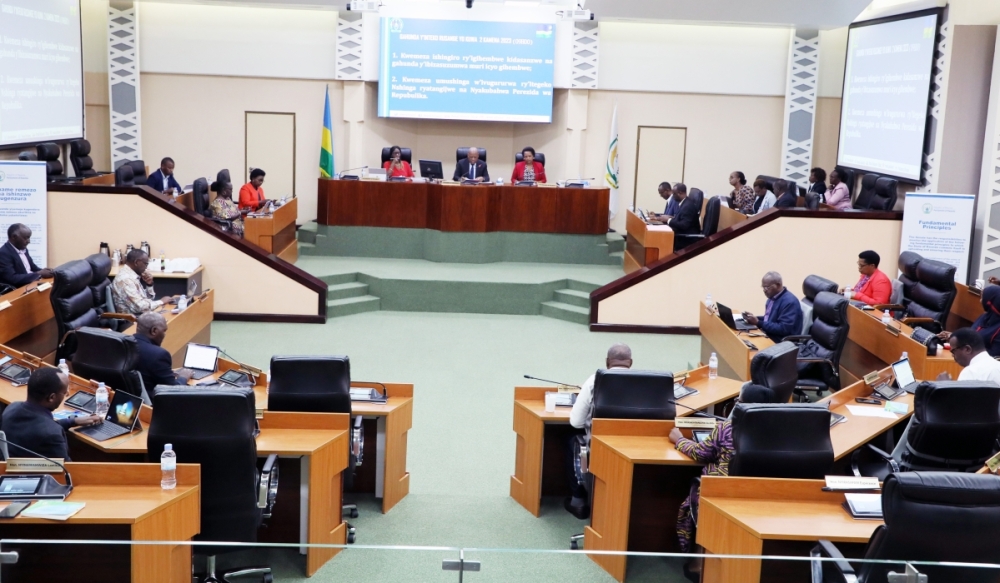

The Constitution of Rwanda provides that the Senate cannot be dissolved. This is a different case compared to the Chamber of Deputies whose dissolution can be done by the President of the Republic for legally stated reasons.
The Constitution stipulates that for election purposes, the President dissolves the Chamber of Deputies at least 30 days and not more than 60 days before the end of the parliamentary term.
The President, after consultation with the Prime Minister, the Speaker of the Chamber of Deputies, the President of the Senate and the President of the Supreme Court, may dissolve the Chamber of Deputies "due to serious matters of national concern.”
But the Constitution specifies that the Senate cannot be dissolved.
As the upcoming elections of senators - which are the fourth legislative polls since the creation of the country’s upper house in 2003 – are scheduled for September, one of the things that should be explained is the fact that the Senate cannot be dissolved.
ALSO READ: Ten things to know about Rwanda’s senatorial polls
Observance of fundamental principles as a major responsibility
NEC Executive Secretary, Charles Munyaneza, said that one of the reasons the Senate cannot be dissolved is its major responsibility provided for in Article 10 of the Constitution, that is upholding and ensuring respect for the fundamental principles.
Those fundamental principles are prevention and punishment of the crime of genocide, fight against denial and revisionism of genocide as well as eradication of genocide ideology and all its manifestations; eradication of discrimination and divisionism based on ethnicity, region or any other ground, as well as promotion of national unity.
Others are equitable power-sharing; building a state governed by the rule of law, a pluralistic democratic government, equality of all Rwandans and between women and men which is affirmed by women occupying at least 30 per cent of positions in decision-making organs; building a State committed to promoting social welfare and establishing appropriate mechanisms for equal opportunity to social justice; as well as constant quest for solutions through dialogue and consensus.
"Those fundamental principles are permanent, and so is its respect,” Munyaneza said at a press conference on Friday, August 30, citing the unity of Rwandans, democratic governance, and gender equality.
"Therefore, that is why senators must always be present,” he said, adding that that’s why there are senators who are elected or appointed at the commencement of legislative term, while for others, it is done a year later.
Continuity in legislation, country’s governance
Indeed, Munyaneza said, the President appoints four senators at the beginning of a term, and appoints another four one year later.
There are four senators designated by the National Consultative Forum of Political Organisations – two at the commencement of a term, and another two a year later.
All this is intended "to ensure that there is no Senate vacuum that can cause a lack of an entity in charge of supervising the observance of fundamental principles enshrined in the constitution,” Munyaneza said.
"Whereas the Lower Chamber gets dissolved, the Senate does not get dissolved to make sure that in case there are laws to be enacted, in case there is other activity that need to be done that is within the mandate of the Senate, it continues to make sure that gap between elections and the gap between getting mew senators does not affect the governance of this country in terms of legislation.
"It is a matter of making sure that there is continuity in terms of legislation, in terms of working with the executive, in terms of working with the judiciary,” he said.
That explains why even two weeks before the elections, the senators can sit and take decisions on what needs to be deliberated based on the mandate of the Upper Chamber of Parliament.


